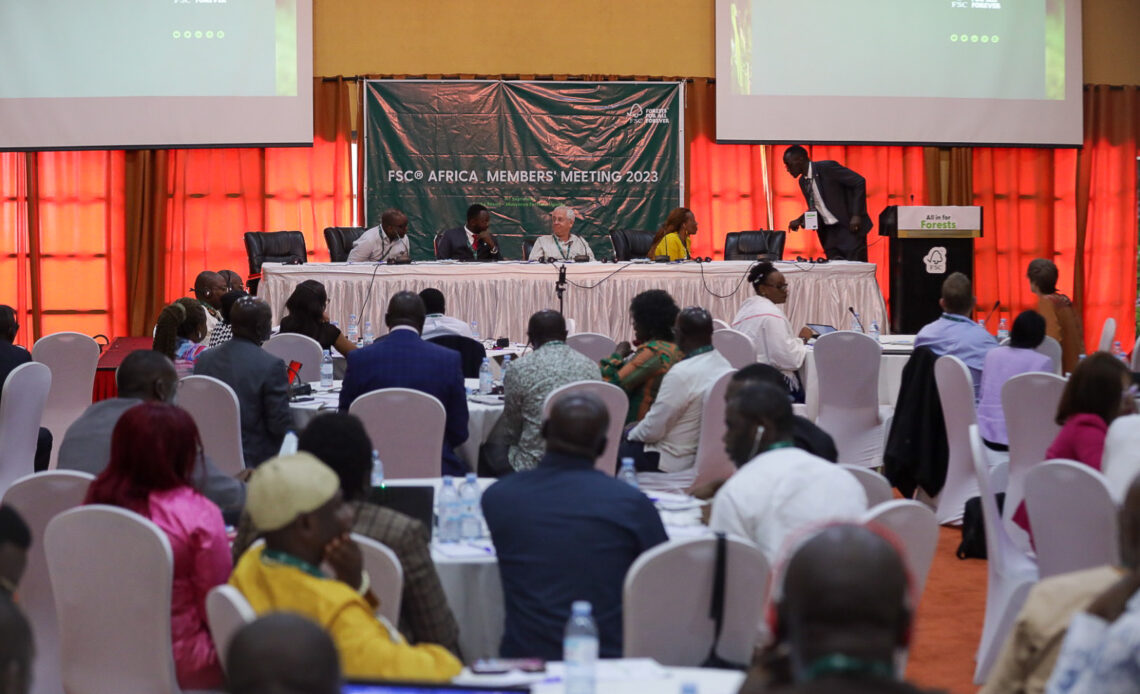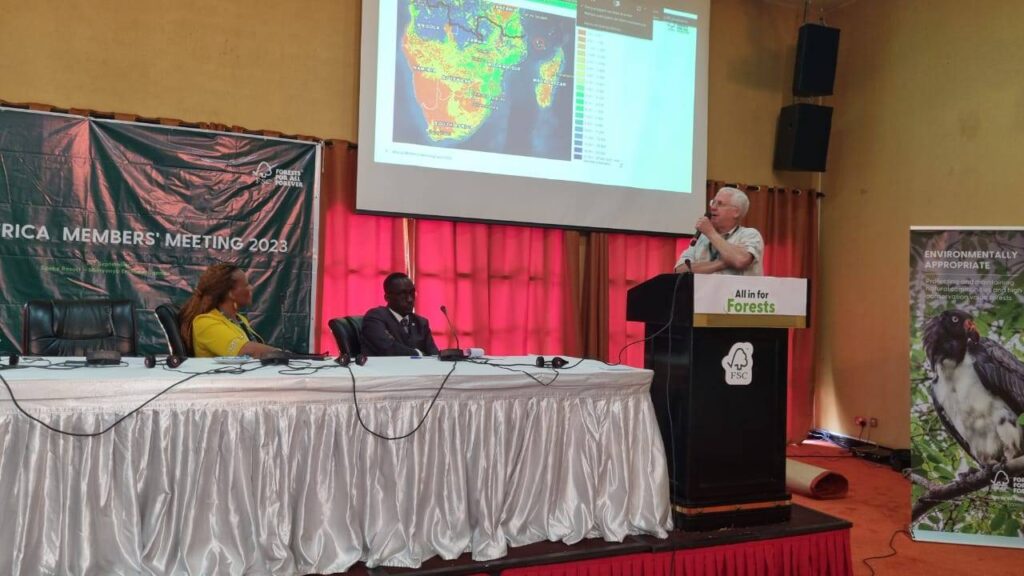
On Wednesday, over 100 delegates from various African countries gathered at Speke Resort Munyonyo for a two day regional membership meeting to discuss how Africa can grasp her forestry resources.
The FSC International Africa Regional Membership Meeting was organized by the Forest Stewardship Council (FSC) an International Organization that works to improve forest management worldwide, and through certification creates an incentive for forest owners and managers to follow best social and environmental practices.
This event comes days after the Africa Climate Week & Summit commenced in Nairobi Kenya where climate change and how it can be averted were the main topics of the day.
With FSC’s mission being to ‘promote environmentally appropriate, socially beneficial, and economically viable management of the world’s forests’, climate change is a major issue that affects them hitting this goal – This literally means that Climate Change was a major topic of discussion across East Africa.
The Main focus of the meeting however was to talk about the concerns of Africa’s forests, climate change that is taking the world by storm and how to have more FSC – certified areas before 2026. This also involved how the organization could lobby governments and stakeholders to support Forest conservation.
The Organization’s 2026 objective is to have at least 15 million hectares of FSC – certified area including national Parks and community managed forests. As of earlier this year, Uganda only had three FSC – Certified National parks and they included; Bwindi Impenetrable, Rwenzori Mountains and Kibale National Park making it the first East African country to attain such status.

One of the basics and elements/tenets that FSC functions with is certification of forest areas. “The main element of sustainable forest management that we work with basically promotes certification,” Anna Agasha, FSC coordinator for East Africa said.
“FSC standards are a benchmark of globally acceptable forest management practices. Compliance with FSC principles demonstrates a commitment to a sustainable forest business approach. The forest is being managed in a way that benefits the lives of local communities and workers, and preserves biological diversity while ensuring it sustains economic viability,” Anna Agasha says in an earlier publication.
Mr. Peter Alele, the FSC Regional Director (Africa) reiterated the importance of forests for all humanity. “The forests are very essential to our existence and it’s very imperative to us as Governments, communities and businesses to make an effort to protect them,” he said.
With over 100 million hectares of forest distributed in East Africa alone, FSC focuses on Uganda, Kenya, Tanzania, Rwanda and Ethiopia leaving the other countries prone to forest damage. The organization also asserts that the East African Sub-region is threatened by agricultural expansion, unsustainable land use methods, illegal settlements, illegal tree cutting, among others, all of which undermine the potential contribution of forests to conservation, poverty alleviation, and economic development.
Between 1990 and 2010, Uganda lost an average of 88,150 ha or 1.86% per year. In total, between 1990 and 2010, Uganda had lost 37.1% of its forest cover, or around 1,763,000 ha.
Moreso, Uganda has some 1592 known species of amphibians, birds, mammals and reptiles according to figures from the World Conservation Monitoring Centre. Of these, 1.1% are endemic, meaning they exist in no other country, and 3.1% are threatened. Uganda is also home to at least 4900 species of vascular plants, which makes conserving forests everyone’s role.
Today, forest and woodland cover in Uganda stands at 49,000 km² or 24% of the total land area. Of these 9,242.08 km² is tropical rainforest, 350.60 km² are forest plantations and 39,741.02 km² is woodland. 30% of these areas are protected as national parks, wildlife reserves or central forest reserves.

